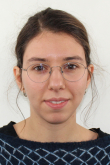Software Seminar Series (S3)
Wednesday, December 15, 2021
Hernan Ponce de Leon, Post-doctoral Researcher, Bundeswehr University Munich, GermanyCats vs. Spectre: An Axiomatic Approach to Modelling Speculative Execution Attacks
Abstract: The Spectre family of speculative execution attacks have required a rethinking of formal methods for security. Approache...
Tuesday, December 14, 2021
Damien Robissout, PhD Student, University of Lyon, FranceScoring the predictions: a new way to perform profiling attacks in side-channel analysis
Abstract: Side-channel analysis is one of the main threats against software and hardware implementations of cryptographic algorith...
Tuesday, December 7, 2021
Joakim Öhman, PhD Student, IMDEA Software InstituteVisibility Reasoning for Concurrent Snapshot Algorithms
Abstract: Visibility relations have been proposed by Henzinger et al. as an abstraction for proving linearizability of concurrent ...
Tuesday, November 30, 2021
Nicolas Mazzocchi, Post-doctoral Researcher, IMDEA Software InstituteFORQ-based Language Inclusion Formal Testing
Abstract: We provide a simple and efficient in practice algorithm to decide the language inclusion between (nondeterministic) Büch...
Tuesday, November 16, 2021
Lukas Aumayr, PhD Student, Vienna University of Technology, AustriaBeyond Payments in Payment Channel Networks
Abstract: Bitcoin and many other cryptocurrencies suffer from scalability issues. Payment Channel Networks (PCNs) are the most pro...
Tuesday, November 2, 2021
Niki Vazou, Assistant Research Professor, IMDEA Software InstituteRefinement Types
Abstract: Refinement types are a type-based, static verification technique designed to be practical. They enrich the types of an e...
Tuesday, October 26, 2021
István András Seres, PhD Student, Eötvös Loránd UniversityThe Cambrian Explosion of Private Message Detection Schemes
Abstract: Private Message Detection (PMD) as a new cryptographic primitive has been identified lately. A PMD protocol aims to allo...
Tuesday, October 19, 2021
Thaleia Dimitra Doudali, Assistant Research Professor, IMDEA Software InstituteBuilding smart and fast systems using Machine Learning and Computer Vision
Abstract: Nowadays, computing platforms use a mix of different hardware technologies, as a way to scale application performance, r...
Wednesday, July 21, 2021
Isabel García, PhD Student, IMDEA Software InstituteA scalable static analysis framework for reliable program development exploiting incrementality and modularity
Abstract: Automatic static analysis tools allow inferring properties about software without executing it and without the need for ...
Tuesday, June 29, 2021
Nicolas Mazzocchi, Post-doctoral Researcher, IMDEA Software InstituteDecomposing Permutation Automata
Abstract: Compositionality is a fundamental notion in numerous fields of computer science. This principle can be summarised as fol...
Tuesday, June 22, 2021
Emanuele Giunta, PhD Student, IMDEA Software InstituteEfficient and Universally Composable Single Secret Leader Election from Pairings
Abstract: Single Secret Leader Election (SSLE) protocols allow a set of users to elect a leader among them so that the identity of...
Tuesday, April 6, 2021
Luis Miguel Danielsson, PhD Student, IMDEA Software InstituteDecentralized Stream Runtime Verification for Timed Asynchronous Networks
Abstract: We study the problem of timed asynchronous decentralized monitoring of stream runtime verification specifications. In de...
Tuesday, March 16, 2021
Fedor Ryabinin, PhD Student, IMDEA Software InstituteSwiftPaxos: Fast Geo-Replicated State Machines
Abstract: Cloud services improve their availability by replicating data across sites in different geographical regions. A variety ...
Tuesday, March 9, 2021
Alejandro Aguirre, PhD Researcher, IMDEA Software InstituteA Pre-Expectation Calculus for Probabilistic Sensitivity
Abstract: Sensitivity properties describe how changes to the input of a program affect the output, typically by upper bounding the...
Tuesday, February 23, 2021
Kyveli Doveri, PhD Student, IMDEA Software InstituteDeciding Inclusion for Languages of Infinite Words
Abstract: We present a novel algorithmic framework to decide whether inclusion holds between ω-regular languages of infinite words...














